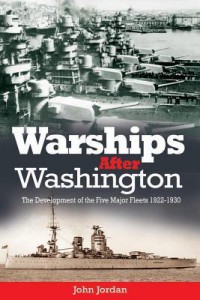

Most ebook files are in PDF format, so you can easily read them using various software such as Foxit Reader or directly on the Google Chrome browser.
Some ebook files are released by publishers in other formats such as .awz, .mobi, .epub, .fb2, etc. You may need to install specific software to read these formats on mobile/PC, such as Calibre.
Please read the tutorial at this link: https://ebookbell.com/faq
We offer FREE conversion to the popular formats you request; however, this may take some time. Therefore, right after payment, please email us, and we will try to provide the service as quickly as possible.
For some exceptional file formats or broken links (if any), please refrain from opening any disputes. Instead, email us first, and we will try to assist within a maximum of 6 hours.
EbookBell Team

4.1
60 reviewsThe Washington Treaty of 1922, designed to head off a potentially dangerous arms race between the major naval powers, agreed to legally binding limits on the numbers and sizes of the principal warship types. In doing so, it introduced a new constraint into naval architecture and sponsored many ingenious attempts to maximise the power of ships built within those restrictions. It effectively banned the construction of new battleships for a decade, but threw greater emphasis on large cruisers.rn This much is broadly understood by anyone with an interest in warships, but both the wider context of the treaty and the detail ramifications of its provisions are little understood. The approach of this book is novel in combining coverage of the political and strategic background of the treaty – and the subsequent London Treaty of 1930 – with analysis of exactly how the navies of Britain, the USA, Japan, France and Italy responded, in terms of the types of warships they built and the precise characteristics of those designs. This was not just a matter of capital ships and cruisers, but also influenced the development of super-destroyers and large submarines.rn Now for the first time warship enthusiasts and historians can understand fully the rationale behind much of inter-war naval procurement. The Washington Treaty was a watershed, and this book provides an important insight into its full significance.
**
ReviewThe approach of this book combines coverage of the political and strategic background of the treaty, and the subsequent London Treaty if 1930, with analysis of how the navies of Britain, the USA, Japan, France and Italy responded, in terms of the types of warships they built and the precise characteristics of those designs. This was not just a matter of capital ships and cruisers, but also influenced the development of super destroyers and large submarines. For the first time, warship enthusiasts and historians can understand the rationale behind much of inter-war naval procurement. The Washington Treaty was a watershed, and this book provides an insight into its full significance, looking at how capital shops and aircraft carriers were developed prior to 1930. - Ships Monthly Overall, this is an extremely well-written and interesting account of an aspect of the Treaty that has, until now, been less well-explored than the treaty itself. A number of other reviewers have also commented favourably, so it should be a 'must' for any reader of naval works. The Northern Mariner